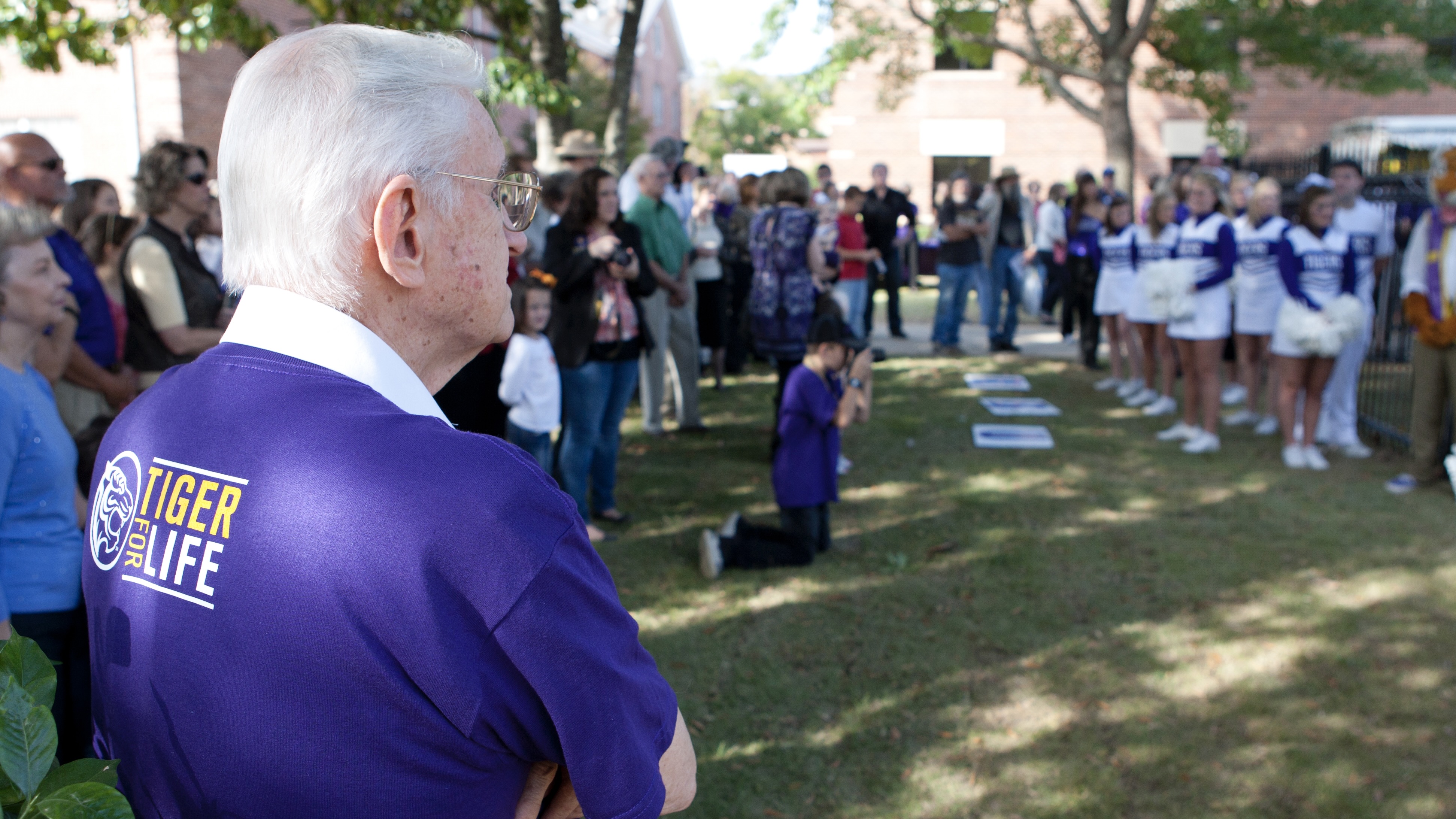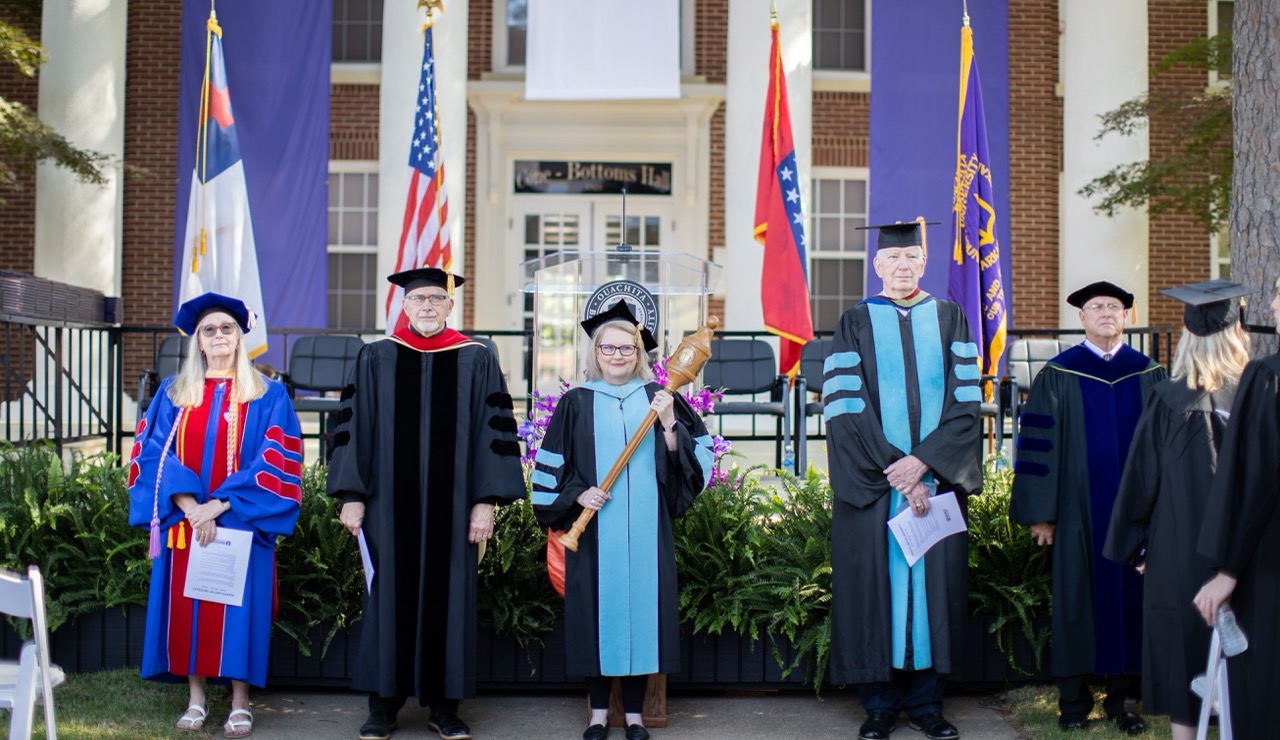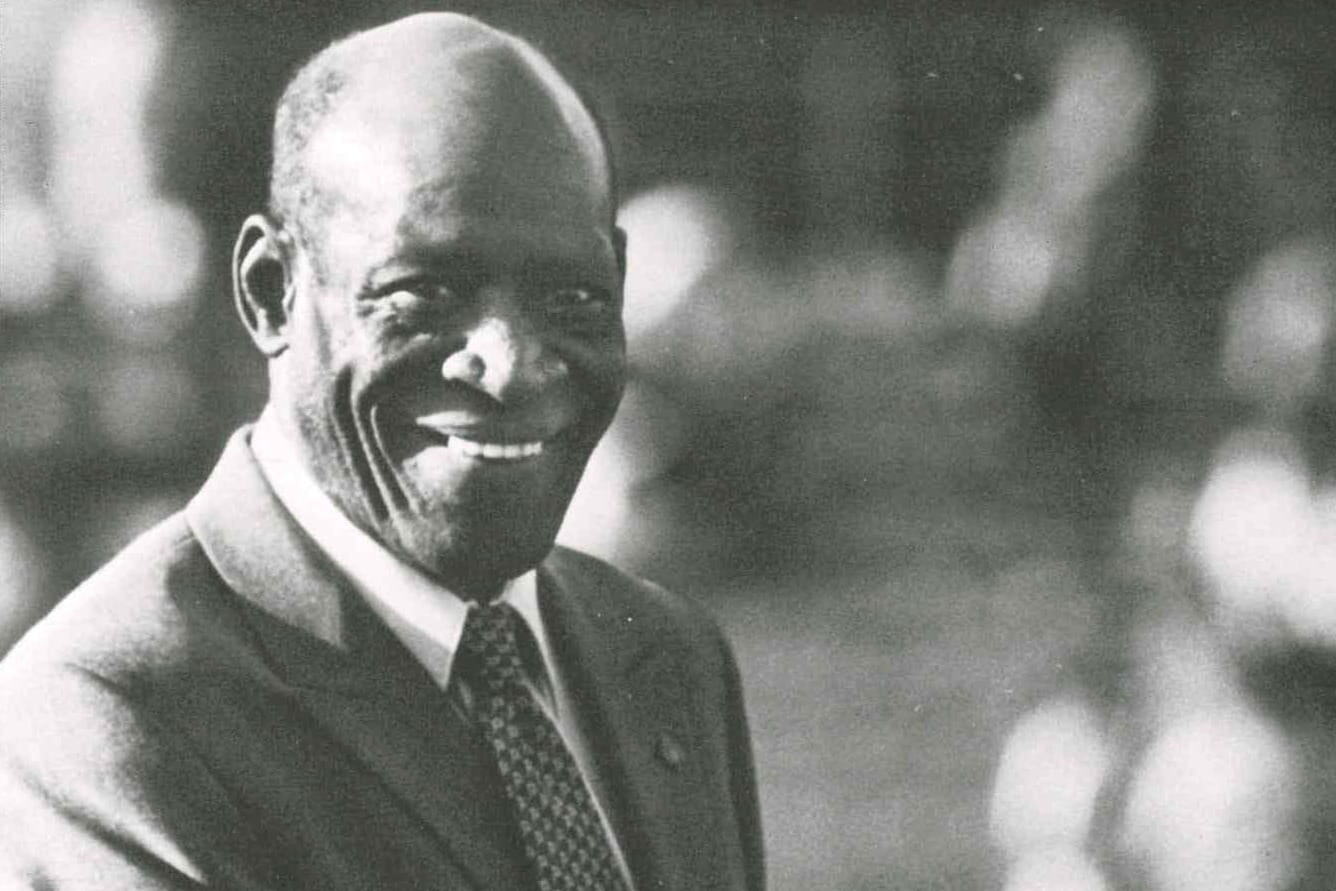Remembering President Emeritus Dr. Daniel Grant
 June 03, 2022
- Bryan McKinney
June 03, 2022
- Bryan McKinneyDr. Daniel R. Grant “retired” from a distinguished career at Ouachita in 1988, just before I arrived on campus as a freshman in 1989. But we all know he didn’t really retire; he just stopped taking a paycheck. Dr. Grant advocated for his beloved Ouachita and its people for the rest of his life.
While he wasn’t “my” president – I didn’t study or serve under him – Dr. Grant played a pivotal role in each decade of my life. When I look back on the arc of my life, few people had a greater impact than he did. He connected my parents as young alumni back to Ouachita in the 1970s. He engaged with my brother and me as prospective students in the 1980s. The Grant Center for International Studies hired my wife in the 1990s, first as a work-study student and then full-time upon her graduation. He personally invested in me as a young Ouachita employee in the early 2000s. And as he continued playing tennis into the 2010s, he convinced me that aging wasn’t so bad after all.
One of my favorite Bible verses is John 21:25: “Jesus did many other things as well. If every one of them were written down, I suppose that even the whole world would not have room for the books that would be written.” I smile when I read this verse and believe similar words might be written of Dr. Grant’s life. No doubt each of us has our own favorite Dr. Grant story; if we all wrote them down, we would need quite the library to hold them all.
What follows is my contribution to the library.
About a decade ago, Dr. Grant asked if he and Mrs. Grant could meet with me. Of course I was honored, and I volunteered to go to their home as I had done a number of times. He said, “That won’t be necessary. We always enjoy coming to campus. We’ll meet you in the Peeples Conference Room in Cone-Bottoms Hall.”
I wasn’t one to re-direct Dr. Grant. So, on the day of our meeting, I waited for them on the back steps of Cone-Bottoms. Near me was a sign that said “5 Minute Parking” – it’s there so students can conveniently make a quick payment in the business office.
I had just finished teaching a business law class that morning wherein we discussed Immanuel Kant’s categorical imperative. Kant’s system of ethics hinges on the maxim that we should do only those things that we wish would become universal law, unless there’s a difference that justifies making an exception. So, for example, we shouldn’t text and drive unless we want everyone texting and driving. We should pick up our trash unless we are comfortable with everyone littering, and so on.
While I waited for the Grants, a perfectly healthy 20-year-old student parked in that 5-minute zone, exited his car and briskly walked to a class in an adjacent building.
I must confess, I was a touch annoyed and might have even cast a bit of Kantian judgment his way. After all, we should only do those things that we wish would become universal law. I doubt this student would want all humans deciding which traffic signs apply to them and which do not. And I doubt the student’s failure to arrive on time for class was a difference that justified making an exception to the campus parking policy.
As I was casting judgment, Dr. Grant arrived with Mrs. Grant. He, too, parked in the 5-minute zone. Dr. Grant turned his car off, opened and exited the vehicle, and walked around the car to open the door for Mrs. Grant. He helped her out of the car, closed the door behind her and offered his arm to her as the two of them walked towards me.
All the while, I’m wondering if I was too harsh in my view of the student. Maybe, after all, ignoring a 5-minute parking sign wasn’t so bad. Or maybe, there was a difference that justified making an exception for Dr. Grant. He was, after all, president emeritus. And he was, after all, in his late 80s by this point. Maybe for either of these reasons, Dr. Grant should be permitted to park wherever he wants to park.
As I was processing what Kant might have to say about this, Dr. Grant escorted Mrs. Grant to me, gave me her arm and said, “Bryan, could you please take her to our meeting? I’ll be there in a few minutes."
A bit stunned, I watched this 88-year-old president emeritus turn and walk back to his car; I watched as he opened his door and sat down in the driver’s seat and then closed his door; he turned the ignition; he gave us a polite nod, and off he drove. Eventually, he found what he believed to be an acceptable parking place behind Jones Performing Arts Center.
It was a moment I will never forget.
Several minutes later, he made it to the conference room where the meeting was to take place – and he apologized for taking so long to get there. I just smiled and awkwardly said something like, “I want to be like you when I grow up.”
If only our world had more people like Dr. Grant. He didn’t believe he merited an exception. He put others’ needs before his own, and he embodied thoughtfulness and goodness and decency with his every step. As long as Ouachita allows me to teach Business Law, I will tell this story. In doing so, I am hoping to do whatever I can to keep the Dr. Grant standard held high before us.
Upon further reflection, I believe he was “my” president after all. I am so thankful for the imprint he made on my life, on Ouachita and on thousands of people across the globe – before, during and after his service as president.
Rest in peace Dr. Grant. As we endeavor to do those things we wish would become universal law, we need only follow your example.
Lead photo by Wesley Kluck
Bryan McKinney is general counsel and dean of the Hickingbotham School of Business at Ouachita.
- Tags:
- Alumni
- Blogs
- Faculty/Staff
- Grant Center
You Also Might Like
Recent
Ouachita reports Spring '26 enrollment, led by 50% increase in graduate students
February 11, 2026




